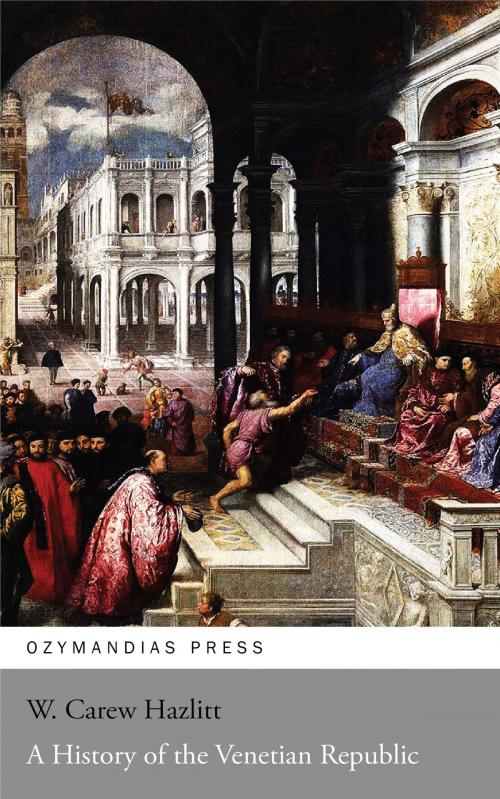| Author: | W. Carew Hazlitt | ISBN: | 9781531291402 |
| Publisher: | Ozymandias Press | Publication: | January 19, 2018 |
| Imprint: | Language: | English |
| Author: | W. Carew Hazlitt |
| ISBN: | 9781531291402 |
| Publisher: | Ozymandias Press |
| Publication: | January 19, 2018 |
| Imprint: | |
| Language: | English |
The ancient Italian province of Venetia is of interest to us in the present inquiry as the source to which the first Venetians looked as the home of their fathers or of their own youth. It was a region of Northern Italy, which extended from the foot of the Alps to the Adriatic Sea; but its boundaries seem to have undergone changes. After its subjugation by the Romans, Venetia was considered as forming part of Cisalpine Gaul. The people are described as a commercial, rather than a warlike, community; and it is a curious circumstance that they displayed in their dress, like their insular descendants, a predilection for black. An immense amount of confusion has arisen in the accounts of this country and its inhabitants by a failure to discriminate with proper care between the Veneti of America and their Adriatic namesakes. The former were remarkable for their proficiency in martial pursuits and their brave resistance to the Roman legions and navy; yet it is at the same time questionable whether the trade in amber conducted by Greeks and Phoenicians between Western Europe and the Baltic does not really belong to the Transalpine Veneti, who are also more likely to be the people among whom Herodotus relates that it was a custom to sell their marriageable daughters by auction...
The ancient Italian province of Venetia is of interest to us in the present inquiry as the source to which the first Venetians looked as the home of their fathers or of their own youth. It was a region of Northern Italy, which extended from the foot of the Alps to the Adriatic Sea; but its boundaries seem to have undergone changes. After its subjugation by the Romans, Venetia was considered as forming part of Cisalpine Gaul. The people are described as a commercial, rather than a warlike, community; and it is a curious circumstance that they displayed in their dress, like their insular descendants, a predilection for black. An immense amount of confusion has arisen in the accounts of this country and its inhabitants by a failure to discriminate with proper care between the Veneti of America and their Adriatic namesakes. The former were remarkable for their proficiency in martial pursuits and their brave resistance to the Roman legions and navy; yet it is at the same time questionable whether the trade in amber conducted by Greeks and Phoenicians between Western Europe and the Baltic does not really belong to the Transalpine Veneti, who are also more likely to be the people among whom Herodotus relates that it was a custom to sell their marriageable daughters by auction...















